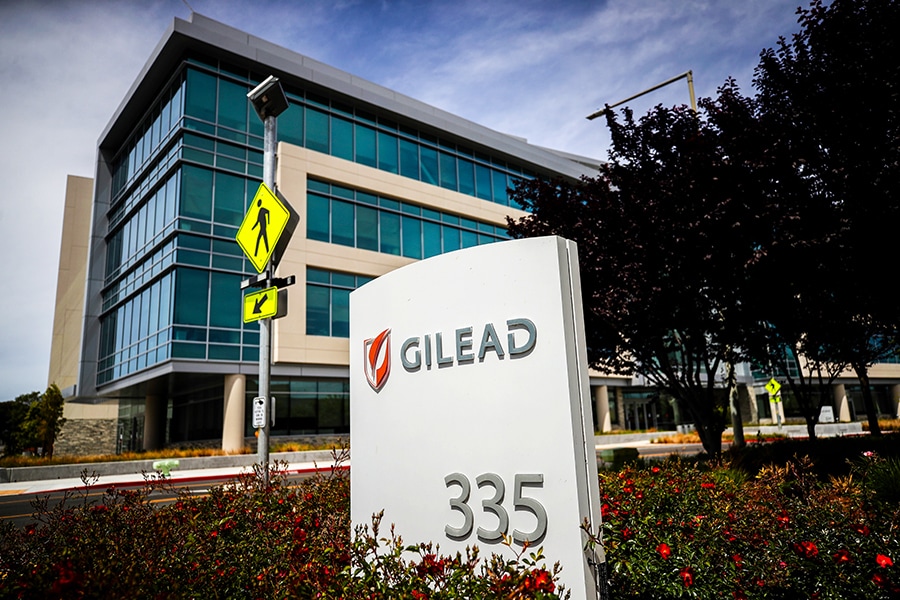
Gilead's COVID-19 Drug is Mediocre. It Will Be a Blockbuster Anyway
Gilead Sciences said Wednesday that remdesivir, which has been authorized for emergency use since the spring, brought in $873 million in revenues so far this year, even though no studies have shown that it lowers death rates
 A sign is posted in front of the Gilead Sciences headquarters on April 29, 2020 in Foster City, California. Gilead Sciences announced preliminary results of a drug trial with that showed at least 50% of patients with coronavirus that treated with a five-day dosage of remdesivir improved and more than half were released from the hospital within two weeks. Image: Justin Sullivan/Getty Images
A sign is posted in front of the Gilead Sciences headquarters on April 29, 2020 in Foster City, California. Gilead Sciences announced preliminary results of a drug trial with that showed at least 50% of patients with coronavirus that treated with a five-day dosage of remdesivir improved and more than half were released from the hospital within two weeks. Image: Justin Sullivan/Getty Images
The United States reached a milestone, of sorts, when last week the Food and Drug Administration approved the first treatment for COVID-19.
The drug is called Veklury, although most people know it by its scientific name, remdesivir.
On Wednesday, its manufacturer, Gilead Sciences, said that remdesivir, which has been authorized for emergency use since the spring, had brought in $873 million in revenues so far this year and that it was the company’s second-best-selling drug in the third quarter, behind its HIV drug, Biktarvy.
But the FDA’s decision to grant the drug full approval — which means the company can begin broadly marketing it to doctors and patients — has puzzled several outside experts, who say that it may not deserve the agency’s stamp of approval because it is, at best, a mediocre treatment for COVID-19, the disease caused by the coronavirus. And they have questioned whether Gilead deserves to pocket potential billions from the drug when the federal government has played a significant role in its development.
“This is a troubling approval,” said Dr. Peter B. Bach, director of the Center for Health Policy and Outcomes at Memorial Sloan Kettering Cancer Center. “This is an extremely weak set of trials to support an approval for an antiviral.”
©2019 New York Times News Service




